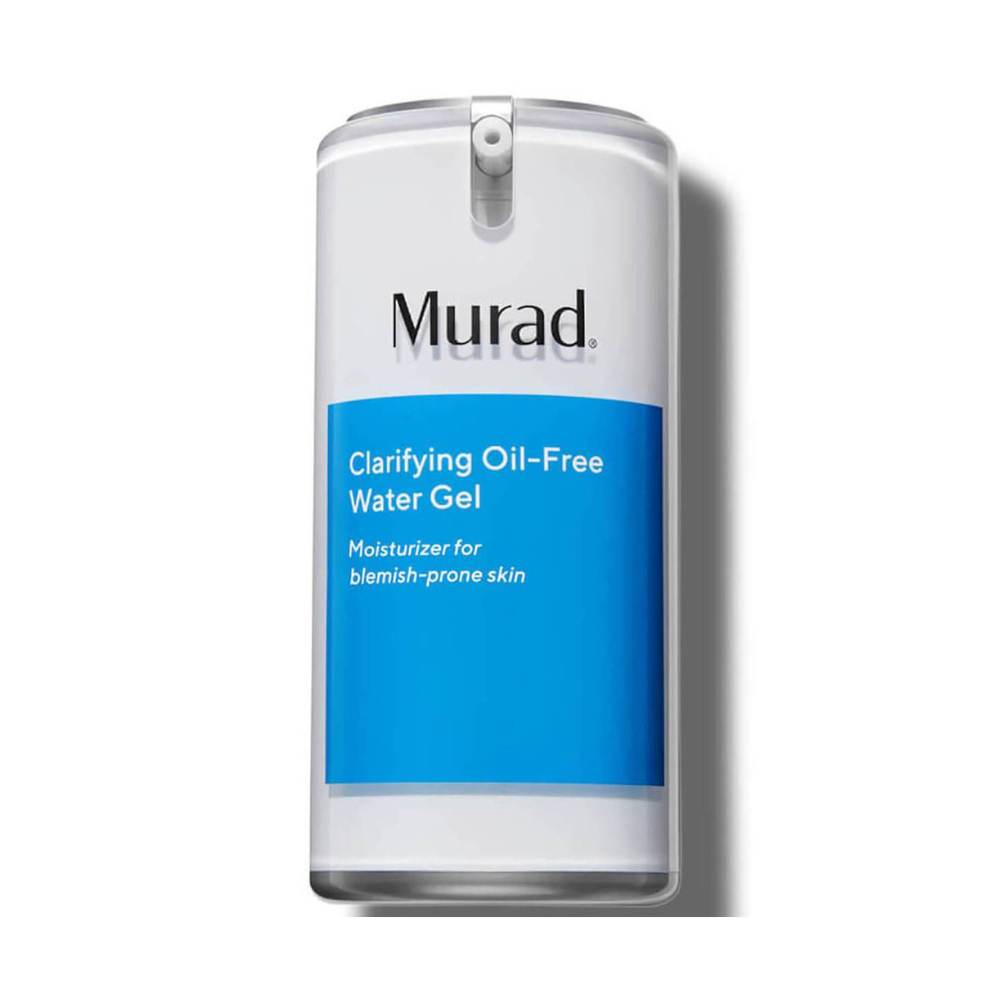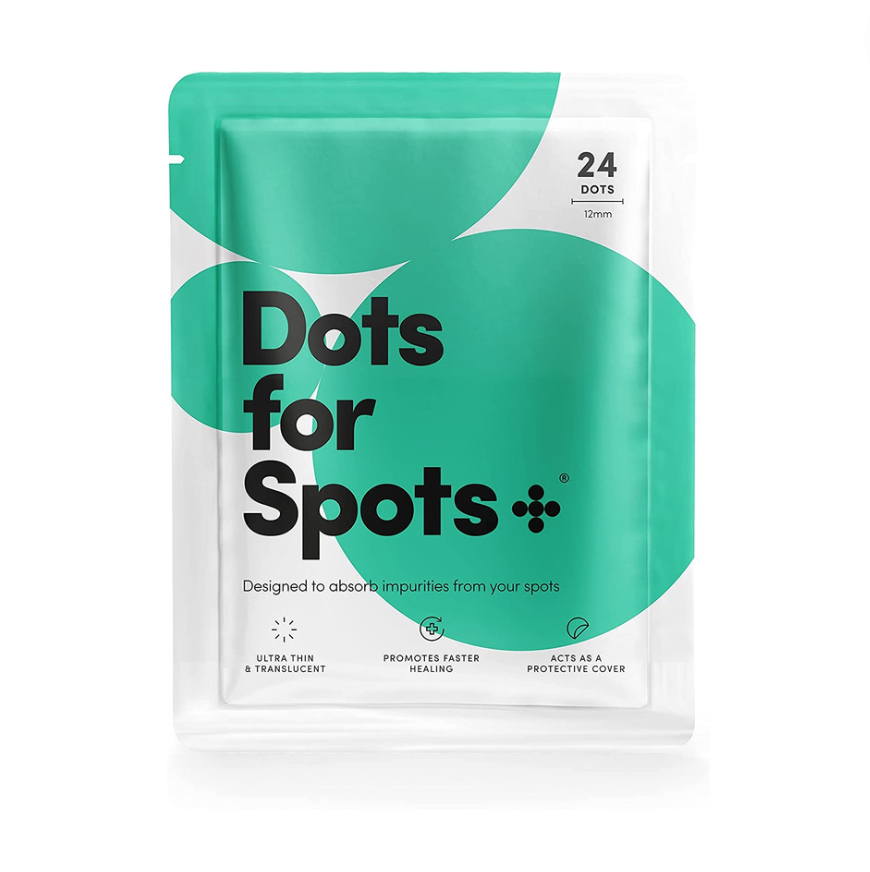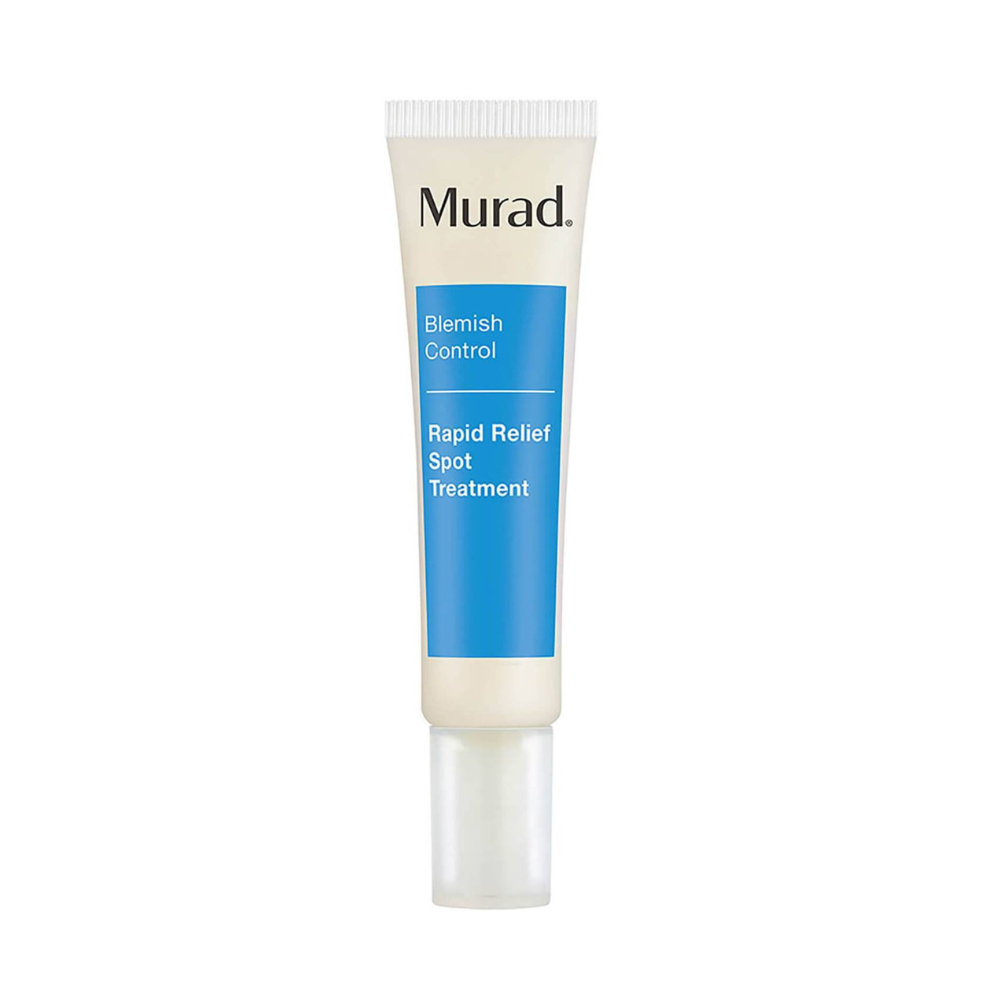Everything you need to know about forehead acne, according to dermatologists
Struggling with forehead acne? We sought out the expert tips you need in terms of triggers and treatments

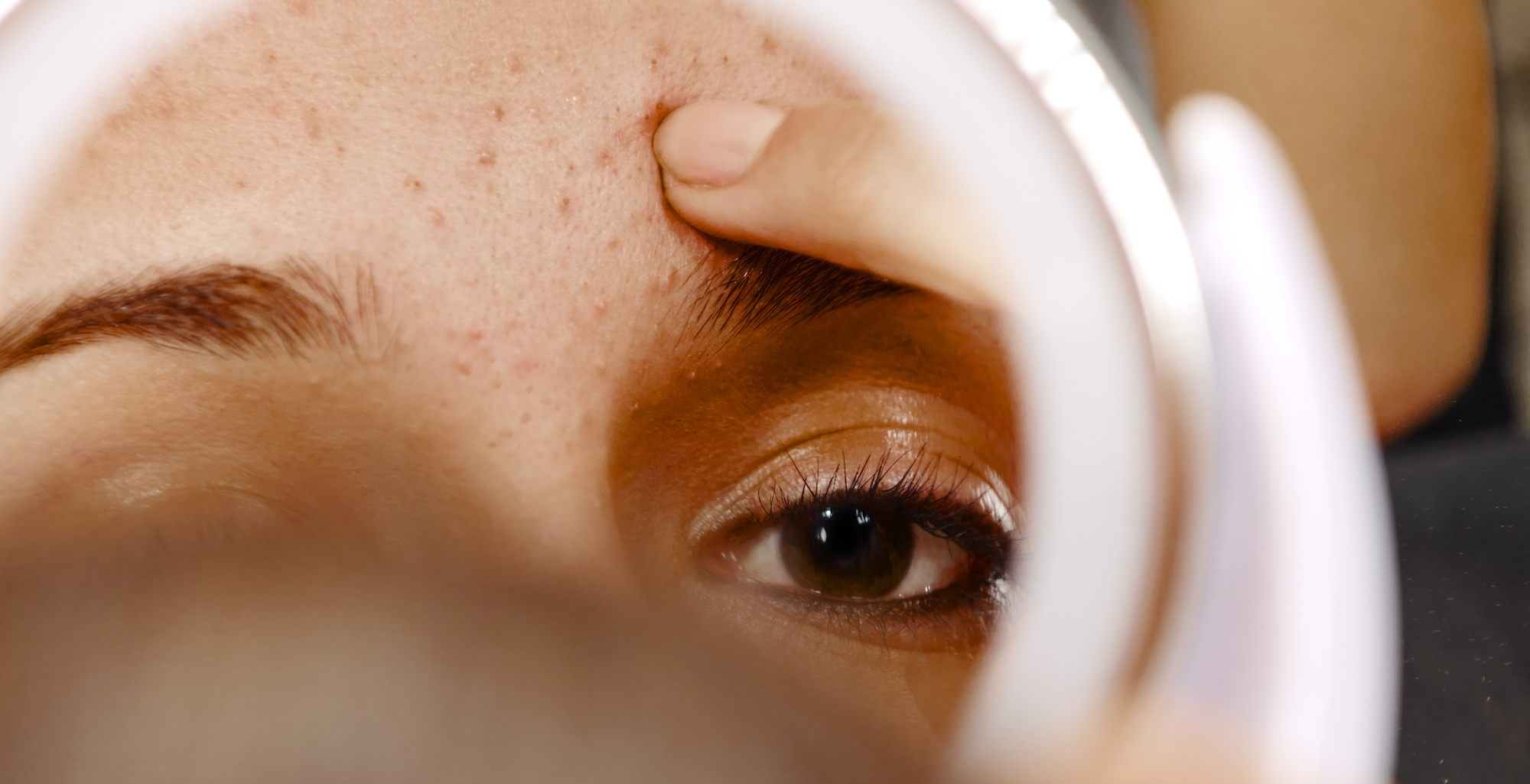
Celebrity news, beauty, fashion advice, and fascinating features, delivered straight to your inbox!
You are now subscribed
Your newsletter sign-up was successful
It’s one of the most common areas for breakouts, but that doesn’t stop forehead acne from affecting your confidence levels – not to mention being a right pain in the proverbial to have to deal with.
Although we associate angry red spots with the word “acne”, it refers to any persistent blemishes resulting from clogged pores, ranging from blackheads to pustules, pastules, or cysts. If you’re struggling with suspected forehead acne, you’re no doubt here because you want advice on managing it long-term with the best acne treatments and the like.
The good news is that Marie Claire’s beauty team has some of the industry’s leading dermatologists on speed dial who are ready to advise on everything from types of acne to the best spot treatments at the drop of a hat. Here are their top tips for forehead breakouts to help you get yours under control.
How to get rid of forehead acne: the expert guide
What causes forehead acne?
A result of excess oil production and clogged pores, “Acne is primarily driven by our individual genetics and hormonal factors,” explains consultant dermatologist Dr Thivi Maruthappu. “That's why we can often see flare-ups just before our period and also during the perimenopausal phase. It arises due to blockage of the sebaceous glands, which become inflamed and swollen, resulting in a painful spot.”
Most people who have acne will experience it on their face, and the forehead is a common area because of the high concentration of oil-producing glands. It’s frequently seen in people in their teens and twenties, but adult acne is also quite common, with the NHS noting that 3% of those over the age of 35 are affected by it. While the primary cause of acne remains the same wherever it’s present on the face or body, there are some other things that may trigger or worsen it.
“Certain hair styling products, such as oils and waxes, can cause forehead acne, particularly blackheads or whiteheads,” consultant dermatologist Dr Anjali Mahto writes in her book, The Skincare Bible. "The products themselves actually block pores, resulting in what is known as 'pomade acne'."
“Forehead acne can also occur if you keep your hair in a fringe. Hair will rub against the forehead skin, causing irritation and potentially contributing to breakouts," she continues. "The same applies to regularly wearing hats, caps and helmets. If your hair is oily, this may further aggravate the problem.” If you don’t want to ditch your fringe, Dr Mahto recommends keeping it away from your face on occasion, using a headband at the gym, and a shower cap while using treatments.
Celebrity news, beauty, fashion advice, and fascinating features, delivered straight to your inbox!
Some people notice a link between dairy and acne, but that isn't the case for all acne sufferers. "One of the most common questions that I'm asked is whether certain foods cause acne," Dr Maruthappu tells us. "While some people may notice acne flare-ups after eating certain foods (particularly after high-sugar foods or low-fat milk), these should be considered as triggers rather than a cause. I see many patients for whom reducing these foods makes little or no change to their acne, so please don't blame yourself for your breakouts!"
How to treat forehead acne
If you’ve been consistent with a skincare routine for acne and things don’t seem to be improving, or your blemishes go beyond your usual breakout, it’s important you seek medical advice. “My key takeaway would be that no one should be suffering in silence because of their skin,” Dr Mahto stresses. “If you have tried over-the-counter products that have failed to work, your acne is affecting how you feel or is causing scarring or pigmentation, then these are all signs that you should be seeking medical attention.”
“If seeking help from a consultant dermatologist privately is cost prohibitive, your first port of call would be with your NHS GP,” she continues. “They can offer advice and some courses of action, but often they will refer to a consultant dermatologist as this is our area of expertise.”
If you aren’t quite at that stage, however, there are some ingredients that it’s worth factoring into your skincare routine and some lifestyle changes that may help. Our experts recommend looking out for products containing salicylic acid, niacinamide, azelaic acid, benzoyl peroxide and retinoids – your doctor may prescribe a cream containing a stronger form of this last ingredient.
“Rich essential oils and heavy emollients can exacerbate acne by clogging pores and causing congestion,” explains Dr Alexis Granite, consultant dermatologist for CeraVe. “Over-stripping the skin with harsh cleansers can also worsen spots by disrupting the skin barrier, so it's important to strike a balance between a thorough cleanse whilst not over-drying. Generally, for those with breakout-prone skin, I would avoid very oily products. Ingredients such as hyaluronic acid, beta-glucan and glycerin can help provide moisture without clogging the skin or exacerbating spots – which is why I always recommend CeraVe.”
Finally, avoid touching your skin wherever possible, and always cleanse (both face and body, always—there's plenty of great acne body washes out there) after exercising. “Although it’s tempting to touch your face, doing so can spread dirt, oil and bacteria from your hands to your face,” Dr Granite adds. “Only touch your face when you’re cleansing, moisturising or applying sunscreen or make-up, and make sure your hands are clean first.”
The best products for forehead acne
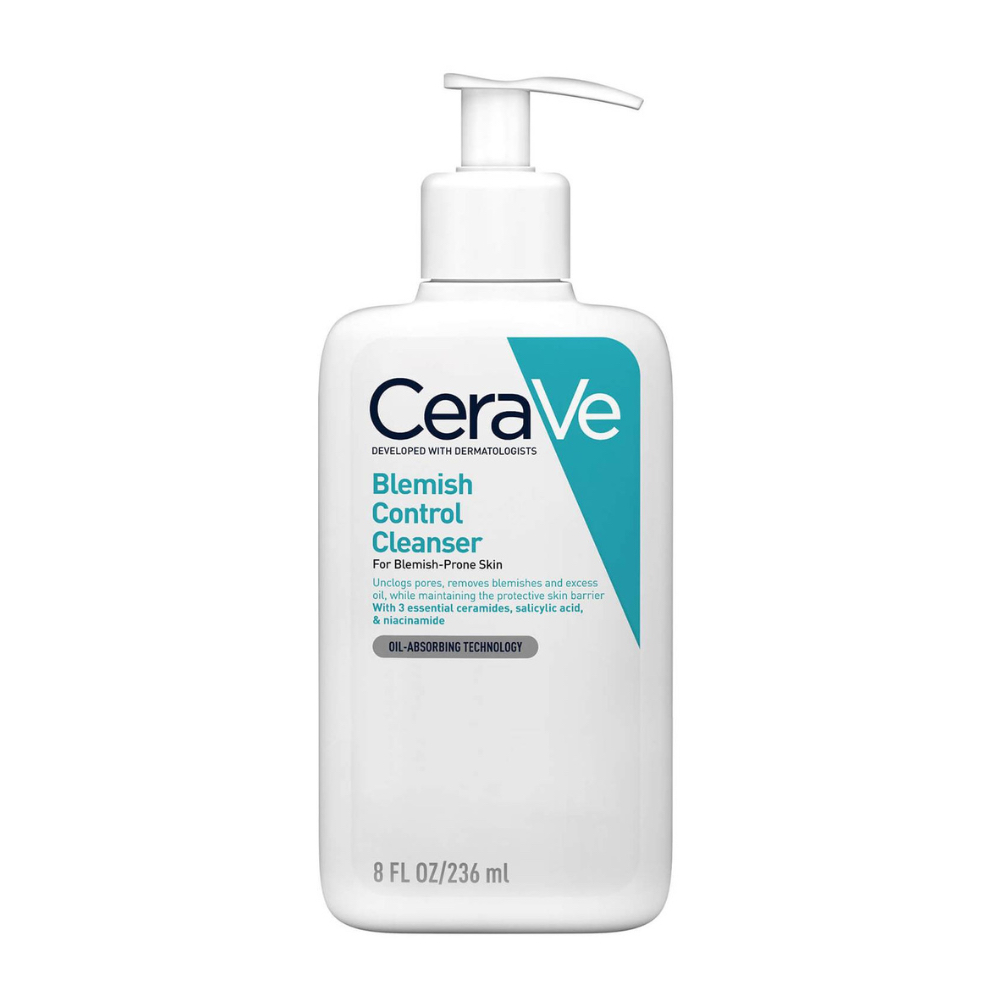
A recent addition the UK CeraVe line-up that's recommended by more than one of our derms, this cleanser packs both salicylic acid and niacinamide, as well as the skin-loving ceramides found in all of the brand's products.
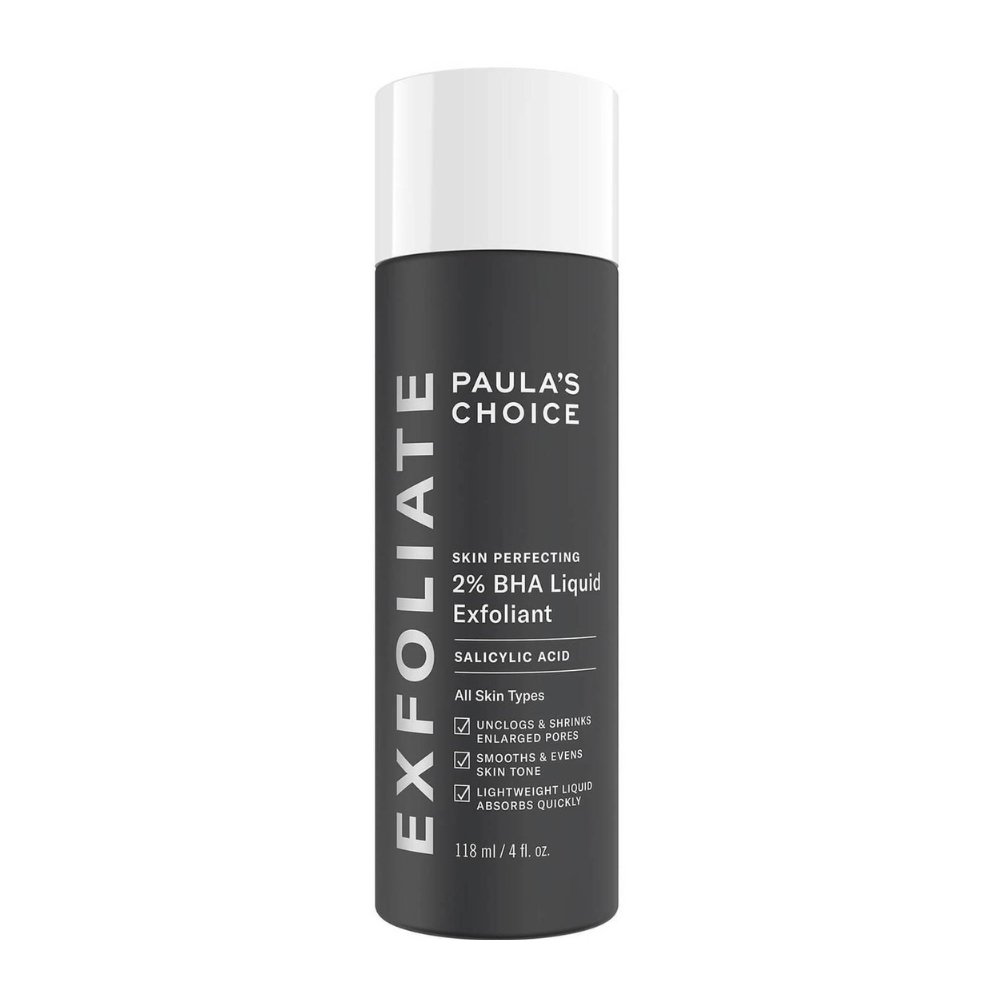
A cult skincare product that's loved by those with blemish prone skin, this exfoliating toner contains 2% BHA and makes light work of unclogging pores. Its texture is a little greasy considering that it's a liquid but, as Paula herself will tell you, people love it for the results.
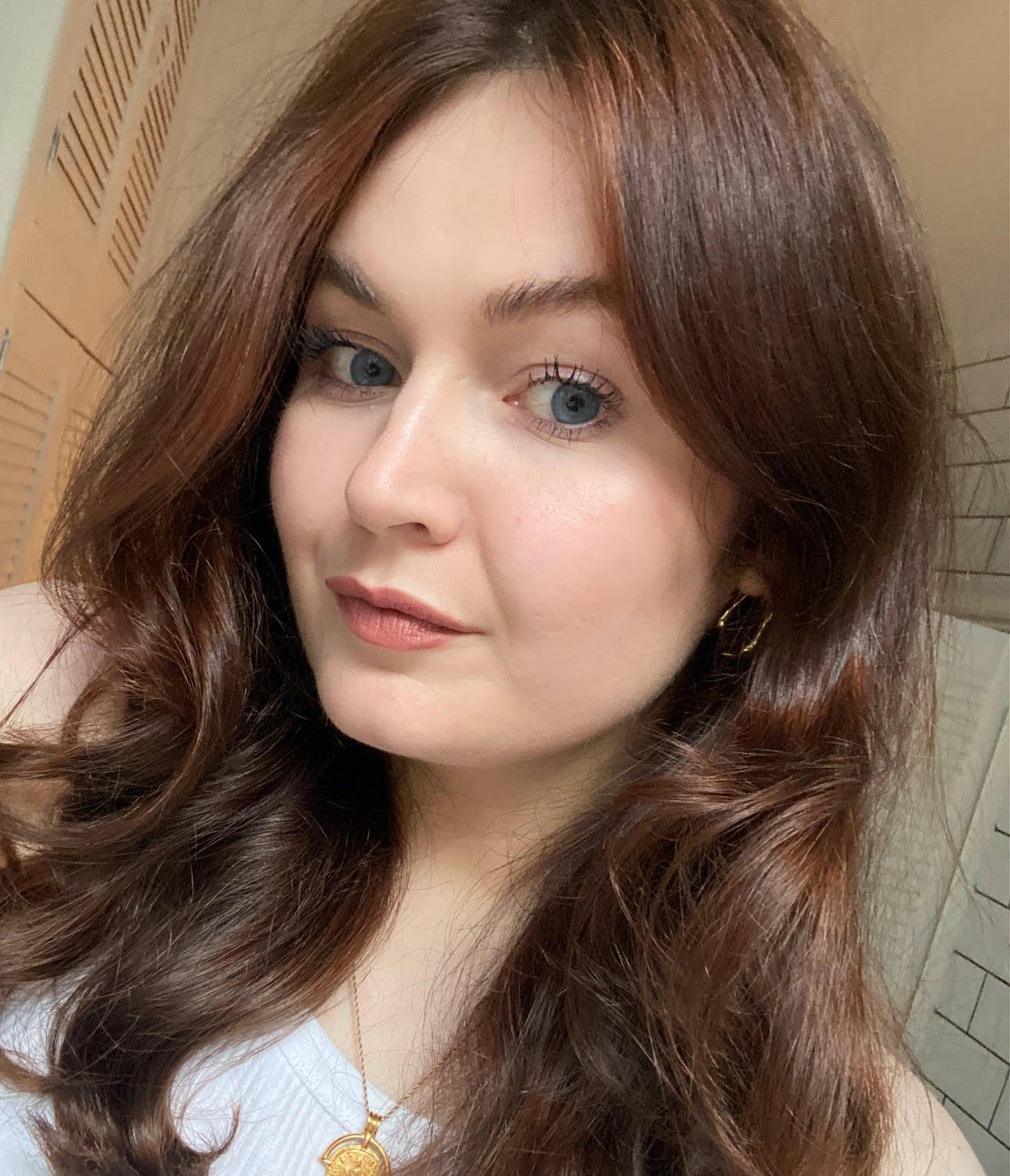
Lucy is a freelance beauty editor and contributor at Marie Claire, and has also written for titles including Cosmopolitan, Refinery29, Glamour and woman&home. She was previously Marie Claire’s junior beauty editor. During her career, she’s covered everything from backstage beauty at fashion week to interviews with famous faces like Drag Race royalty and Little Mix. As for her beauty ethos, she’s a big advocate for not having to spend a fortune on beauty products to get good results. When she’s not got beauty on the brain you’ll probably find her reading or Netflix-ing.
